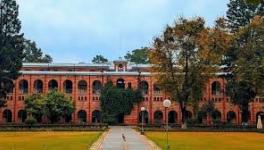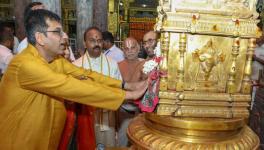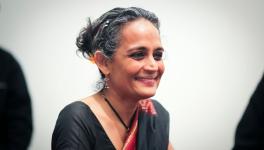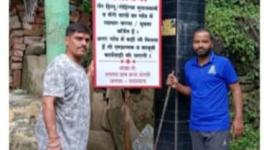Karnataka: How Moral Policing Became a Huge Phenomenon in Dakshina Kannada
Karnataka, in the past few years, has acknowledged a significant rise in cases of moral policing. Coastal Karnataka region and, specifically, the Dakshina Kannada district have emerged as the frontrunner in being the hotbed of moral policing.
The occurrence of moral policing finds special priority in the books of right-wing, Hindutva outfits of the state. However, it has spread like wildfire affecting the psyche of the general population as well.
The most recent incident of moral policing took place among college students in Sullia taluk of Dakshina Kannada district.
On August 30, 19-year-old Mohammad Sanif, a Bachelor of Commerce (B.Com) student, was beaten up and threatened by his college mates for befriending a Hindu girl named Pallavi.
Sanif was beaten up by Dikshit, Dhanush, Akshay, Mokshith, Prajwal and Thanuj, all final-year Bachelor of Business Administration students.
On the night of July 25, Bajrang Dal members barged into Mangaluru’s ‘Recycle Pub’ in the name of moral policing and objected to women partying at the venue.
Members of the Hindutva outfit hurled abuses at students when they were seen rushing out of the pub. This attack was on the pretext of a viral video that made rounds on social media a few days back, where youngsters were seen kissing.
Bajrang Dal workers were seen intruding on pub premises, but police claimed to have a different approach to the incident.
Mangaluru city Police Commissioner, N Satish Kumar, in a statement said, “At around 8 pm on July 25, there was an incident at a pub called Recycle near Balmatta area that comes under the jurisdiction of North police station. Some persons claiming to belong to some organisations informed media persons that in Recycle pub, illegal activities are taking place and it will have to be stopped.”
The recent pub incident resembles the infamous attack on girls at Amnesia pub by Sri Rama Sene members in 2009.
The frequent incidents of moral policing happen due to several reasons, including the impunity granted to the policing, political emboldenment and modus operandi of Hindutva outfits against selective targets.
Hindutva Outfits Justify Moral Policing
Hindutva organisations and their members say they use moral policing to protect the nation's culture and dignity.
Vishwa Hindu Parishad state leader, Sharan Pumpwell told NewsClick, "The so-called moral policing as alleged by media, police, social activists is nothing but a way to safeguard our culture, Sanatan dharm, and nation's dignity."
The VHP leader also defended the occurrence of scuffles and harassment during moral policing.
He said, "Protesting against wrongdoing such as roaming with people of other faith, partying at pub, bar, and drinking, often involves physical scuffle, abuse, heated arguments, etc. That's not moral policing. It's an action to save our culture and religion."
VHP members in August registered a complaint with the police against pubs and bars allowing minor boys and girls who are also suspected of drug consumption.
Modus Operandi
The right-wing organisations across Dakshina Kannada identify and trace couples for policing with the help of a well-established network of informers. These informers are common people with an ideological commitment to the Hindutva agenda.
VHP leader Sharan Pumpwell confirmed getting information on interfaith couples from a well-established network of people, including bus drivers, bus conductors, auto drivers, vegetable-fruit vendors, shopkeepers and people staying near public and tourist spots like parks, waterfall, beach, etc. They send information about movement of youths, interfaith men and women mingling with each other.
This claim is further proven in the PUCL Karnataka-AILAJ-AIPF report on moral policing and hate crimes in Karnataka.
In March 2021, two youths (a Hindu girl and a Muslim boy) were stopped by Bajrang Dal workers in Surathkal (Dakshin Kannada). This information about two friends travelling together in a bus was passed on to Bajrang Dal by the bus conductor.
Legal Counter to Moral Policing
Action on complaints of moral policing has been taken as per the statement and wishes of victims, the police claimed.
On the condition of anonymity, a police official of the Moodbidri police station (Mangaluru) told NewsClick, “Police in some instances did not file any case against moral policing as the victims denied to go further. But many instances resulted in arrest under different sections of the Indian Penal Code (IPC).”
The act of moral policing does not fall under any specific section of the Indian Penal Code (IPC), but the actions can attract charges under several IPC sections.
The officer added, “On complaints of moral policing, we have been registering cases under IPC section 354 (outraging modesty of woman), section 342 (wrongfully confines any person), section 354 (molestation), section 323 (voluntarily causing hurt) and section 149 (unlawful assembly).”
Moral Policing Emboldened
The recurrence of moral policing in coastal districts of Karnataka has a lot to do with the backing of the BJP-led state government.
When right-wing activists arrested for moral policing by the Moodbidri police in October 2021 were released on bail, the local BJP MLA Umanath Kotian went to the police station to receive them.
This created uproar in the state's political circles. The Congress party questioned the BJP legislator rescuing those accused of moral policing.
In his defence, MLA Umanath told media persons, “The accused wives and children came to me and requested to get them out of jail. I have done my duty as an MLA.”
Communal intent behind Moral Policing
Social activists in the state largely consider communal intentions have a role to play in moral policing. As coastal districts of Karnataka are the bedrock of communal flare, the recurrence of moral policing has coincided with the region.
All India Democratic Women’s Association (AIDWA) state leader, K.S Vimala told NewsClick, “People involved in moral policing have been indirectly or directly linked to the Hindutva right-wing ecosystem. Women and anyone associated with the Muslim community or belonging to the community become their target.”
According to Clifton D’ Rozario, CPI (ML) state secretary, communal agenda drives the framework of moral policing that further transforms into ‘communal policing’.
Clifton told NewsClick, “Moral policing is among the many tools to perpetuate communal polarisation. Brazenly targeting interfaith relations is proof of it.”
In March 2022, JD(S) MLC B.M Farooq raised the question of the rampant increase in moral policing cases in the state, and particularly the coastal Karnataka region. State home minister Araga Jnanendra replied to him, saying, “There were 31 cases of moral policing that took place in three districts of the state, namely Dakshina Kannada (23), Udupi (6) and Uttara Kannada (2).”
Impunity to Miscreants
AIDWA leader Vimala said, “Recurrence of moral policing cases happen at the behest of impunity to miscreants by the police and the government. This leads to a free hand to misbehaving, manhandling, and stalking etc.”
Views of Karnataka’s former police head indicate the same.
For Karnataka’s Former Director General of Police, F T R Colaso, moral policing is the result of deterioration in the state’s social atmosphere.
Colaso told NewsClick, “In the recent past, instances of moral policing in the state have risen, which is not a good sign. The recent case of moral policing in Mangaluru shows derogatory behaviour when compared to the state's past dignified social atmosphere.”
Colaso considers that impunity emboldens moral policing. He said, “Police administration instead of taking hard measures against miscreants are working under pressure from the BJP government. This emboldens the motive of moral policing.”
Former Judge of Karnataka High Court, Justice H.N. Nagamohan Das considers moral policing as mocking democratic rights.
He told NewsClick, “Moral policing taking place in the state is a degradation of social and democratic rights. I even condemned the state chief minister's irresponsible statement on moral policing.”
Last year Karnataka Chief Minister B.S. Bommai triggered a controversy over moral policing carried out by vigilante groups. He said, “When sentiments are hurt, there will normally be action and reaction.”
Bommai’s statement was heavily criticised by many in the state.
Timeline of Moral Policing in Dakshina Kannada
Here is a list of recent cases of moral policing in the state:
-
August 30, 2022, Mohammad Sanif (19), a first-year Bachelor of Commerce (B.Com) student, was beaten up and given death threats by his college mates for befriending a Hindu girl.
-
July 25, 2022, Bajrang Dal workers objected to women partying in a Mangaluru pub.
-
March 5, 2022, right-wing activists assaulted a Muslim man for travelling with a girl of different faith in Mangaluru.
-
October 9, 2021, right-wing workers abused a Hindu woman for travelling with a Muslim couple in Mangaluru.
-
September 2021, Bajrang Dal workers stopped an MBBS student (girl) for being in the company of Muslim boys in Surthakal.
-
March 30, 2021, an interfaith couple was attacked by Bajrang Dal members for travelling together in a bus.
-
March 29, 2021, Vishwa Hindu Parishad (VHP) members attacked an interfaith couple in Mulki, Dakshina Kannada.
-
February 25, 2021, Seven students were heckled by a BJP worker and a Bajrang Dal worker in Belthangady, Dakshina Kannada.
-
January 14, 2021, members of a Hindutva organisation barged into a birthday party celebration in a cafe in Managluru’s Puttur, claiming no celebration should be done with Muslim youth.
Get the latest reports & analysis with people's perspective on Protests, movements & deep analytical videos, discussions of the current affairs in your Telegram app. Subscribe to NewsClick's Telegram channel & get Real-Time updates on stories, as they get published on our website.
























